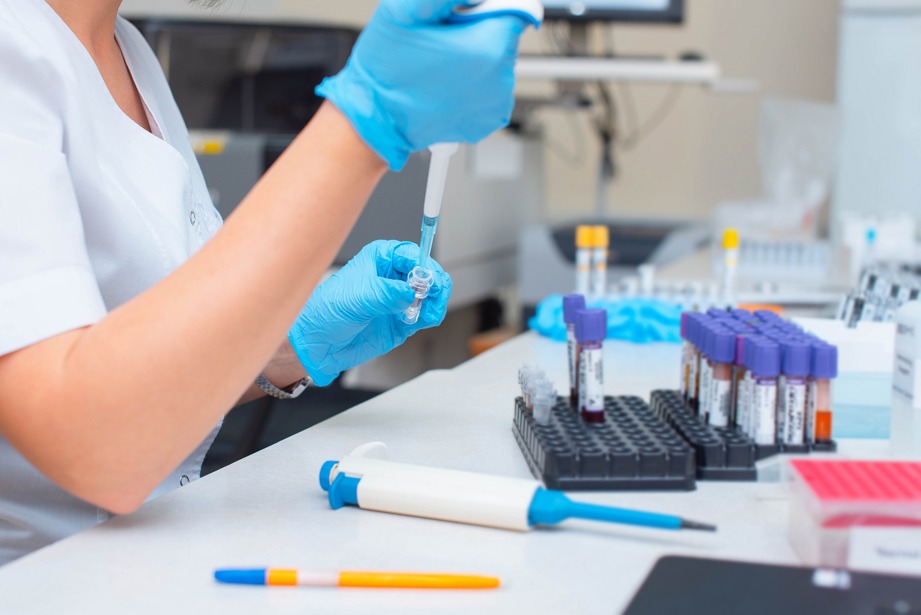The genomic innovation revolution in healthcare
New genomic sequencing technologies and their applications
High-throughput genomic sequencing (or next-generation sequencing, NGS) is a molecular method for rapidly sequencing millions of DNA or RNA molecules simultaneously, with the aim of detecting mutations at the root of cancers, rare genetic diseases, or common illnesses (inflammatory diseases, diabetes, etc.). Since the introduction of the first genomic sequencing tools in the 1970s, sequencing techniques have continued to develop. In 2003, the first complete sequencing of a human genome marked a major turning point in the history of genomic medicine. The development of these new genome sequencing technologies has accelerated over the last two decades, notably with the launch in 2023 of the new ultra-high-throughput NovaseqX+ sequencers from the American company Illumina, which are 4 times more powerful than previous sequencers, and require 4 times less consumables for sequencing. With these new technologies substantially reducing the time and cost of DNA sequencing, they are having a major impact on clinical practice in terms of diagnosis and management of cancers, rare diseases and common illnesses, as well as prevention and therapeutic applications.
The France Genomic Medicine 2025 Plan is helping to structure the innovation sector in France
These developments offer France the opportunity to develop a competitive and innovative industry in the field of genomic medicine. In this respect, the France genomic medicine plan 2025 is part of a care-research continuum with a triple objective:
- Prepare for the integration of genomic medicine into routine care and the management of pathologies
- Establish a national genomic medicine network to serve patients, as a lever for scientific and technological innovation, industrial development, and economic growth
- Position France as one of the leading countries committed to personalized medicine
To achieve these objectives, France genomic medicine plan 2025 has set up several infrastructures: two medical biology laboratories for very high throughput genomic sequencing, a Data Analyzer Collector, and a Reference, Innovation, Expertise, and Transfer Center. While the industry is currently dominated by American, British, and Chinese companies (especially when it comes to consumables and sequencers) , France has a very good network of academic sequencing platforms (Centre National de Recherche en Génomique Humaine, CEA Genoscope, France Génomique national infrastructure). At the same time, several companies (Eurofins genomics, Integragen, and others) and startups (Inorevia, SeqOne, Depixus, and others) are positioned in the genomics industry value chain.
With genomic innovation making it technically possible to newborn screening hundreds of rare diseases using a single biological test, international research is focusing on the deployment of genomic newborn screening (DNNg) to meet public health objectives for the diagnosis and management of rare diseases that are present in children. This is the aim of the ICoNS consortium, which brings together international experts involved in genomic newborn screening research projects. France is represented in the consortium by the Screen4Care project, a public-private partnership bringing together 14 European countries and funded by the European Union, the pharmaceutical industry and academic research institutes. The aim is to generate genomic data on at least 18,000 newborns for treatable and actionable rare diseases.
Beyond these technological innovations, the development of infrastructures and the 2021 bioethics law, which authorizes the use of genetic tests for newborn screening, now make it possible to extend newborn screening in France to genomic newborn screening.
Screening and management of rare genetic diseases: a major public health challenge
Newborn screening : a tool for the diagnosis and management of rare genetic diseases
Newborn screening is an opportunity for the diagnosis and management of rare genetic diseases. The 7,000 rare diseases identified to date affect over 3 million people in France . In half of these cases, they affect children under the age of five, and are responsible for 10% of deaths between the ages of one and five. By detecting rare paediatric diseases before the first symptoms appear in children, newborn screening helps to limit the negative consequences on the health of newborns, and acts as a lever for the development of therapeutic innovations and the optimization of care pathways. For example, the inclusion of cystic fibrosis in the French newborn screening program in 2002, at a time when no effective treatment was yet available, encouraged the establishment of protocolized care paths for affected children, improving their health and quality of life. In this way, the extension of the newborn screening program is a real asset in limiting the complications of more early rare diseases, and the consequences of diagnostic wandering and impasse.
Find out how our team can support you in your patient pathway projects >
The fight against diagnostic wandering and deadlock: the objective of the National Plans for Rare Diseases and the opportunity of genomic newborn screening
Breaking the diagnostic deadlock for a patient suffering from a rare disease is a long process, and one that is not always successful. In France, only half of all rare disease sufferers have a precise diagnosis. For a quarter of patients, this diagnosis takes an average of five years. France is the first European country to have drawn up a national plan for rare diseases, with the reaffirmed support of the public authorities. The first National Plan for Rare Diseases (PNMR) was launched in 2003, with the main aim of improving care for people with rare diseases. The second PNMR (2011-2016) aimed to strengthen the quality of patient care, research into rare diseases, and European and international cooperation on these issues. Finally, the third PNMR (2018-2022) focused on personalized medicine, with the aim of sharing innovation, diagnosis, and treatment for every patient with a rare genetic disease. At the dawn of the fourth National Plan for Rare Diseases, reflections on the extension of newborn screening by genomic analysis appear as an opportunity for the management and diagnosis of hundreds of rare diseases, preventive and personalized medicine and the improvement of care pathways. However, to fully realize these opportunities, it is imperative to address the ethical, social, and regulatory issues associated with the collection, storage, and processing of clinical and genomic data.
In conclusion, the advent of genomic medicine offers promising prospects for newborn screening in France, paving the way for early detection of hundreds of rare diseases. These technological advances are an opportunity to improve patient care, optimize clinical outcomes, and open up new therapeutic avenues. Reflections on the extension of newborn screening require closer collaboration between public authorities, researchers, healthcare professionals, patient associations, rare disease networks, and players in the “genomic medicine” sector, while addressing the ethical and societal issues associated with genomic data collection. The emergence of new sequencing technologies and genomic analysis platforms is creating fertile ground for the development of companies specializing in this field. The future of genomic medicine in the context of newborn screening and the treatment of rare diseases thus relies on a collaborative approach, focusing on innovation, ethics, and patient benefits. Alcimed closely follows the innovation strategies of players in the field, and our team can support you in your projects related to these topics. Don’t hesitate to contact our team!
About the author,
Camille, Consultant with Alcimed’s Innovations and Public Policies team in France



